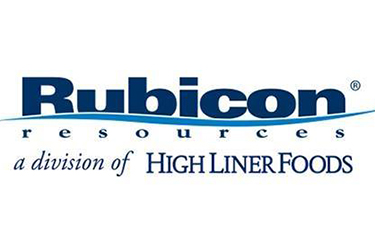An arbitration panel has awarded High Liner Foods an interim award of USD 15.5 million (EUR 14 million) in its lawsuit against Brian Wynn and Rubicon Resources.
High Liner Foods sued Wynn, the former owner of Rubicon Resources, in 2020 for making false representations and warranties in connection with the sale of Rubicon Resources to the Lunenburg, Nova Scotia, Canada-based seafood firm. It alleged Wynn failed to disclose that Rubicon’s shrimp business with Kroger and Sam’s Club had begun to fall apart prior to the sale. It said in its Q3 2023 report it has received USD 10 million (EUR 9.3 million) in insurance proceeds in relation to the suit.
After a two-week hearing, a panel of arbitrators on 28 September found that Wynn, who was Rubicon's founder and president until January 2019, made fraudulent representations associated with the transaction and issued the interim award, High Liner said in its quarterly earnings report.
“It is not possible at this time to determine the final impact of these proceedings or the timing of that impact,” High Liner said.
High Liner is also entitled to “reasonable attorney’s fees and costs, and the company has made additional submissions in this regard,” the company said.
According to the lawsuit, High Liner purchased Rubicon in 2017 for USD 107 million (EUR 98.5 million), netting Wynn USD 64 million (EUR 58.7 million). But soon after the transaction, the business soon lost most of its value.
“To convince High Liner to pay a premium, Wynn sold the company on a story about the company’s extremely valuable customer and supplier relationships. He represented and warranted that the customer relationships were vibrant and that ‘no material’ changes were known to him,” the lawsuit alleged. “At the same time, Wynn knew that those relationships were falling apart. Wynn’s lies put people’s livelihoods at risk and left High Liner holding the bag on an acquisition that had only a fraction of the value for which High Liner paid. Wynn did this with the goal of lining his own pockets.”
At the time, Rubicon’s annual sales to Kroger were USD 107 million and its Sam’s Club sales totaled USD 95 million (EUR 87 million). However, prior to High Liner’s takeover in 2017, Wynn ended Rubicon’s relationship with Sam’s Club and Kroger significantly cut back on its purchases from Rubicon, but Wynn did not inform High Liner before its acquisition closed, according to the lawsuit.
Additionally, Wynn lied to High Liner about other aspects of the business, High Liner claimed.
“As part of his effort to inflate Rubicon’s value and obfuscate its liabilities, Wynn
According to court documents, arbitration proceedings in the case remain ongoing and the interim amounts are subject to change in the final arbitration award. A completion of arbitration hearing is scheduled for 16 February in Santa Monica, California, U.S.A.
In a separate lawsuit, filed in 2019, High Liner alleged that Los Angeles, California-based Haven Foods, headed by former Rubicon executives, poached Kroger’s private-label shrimp business from High Liner and stole trade secrets.
High Liner claimed Wynn largely abandoned Rubicon after the acquisition, despite still being employed to run it, and instead focused on growing Cadence, soliciting business from Kroger and other Rubicon customers in violation of his contract with High Liner, according to the complaint.
“Wynn has leveraged the relationships he developed at Rubicon to attempt to expand his Cadence business, instead of focusing his efforts on expanding the Kroger, Sam’s Club, and other business for Rubicon,” it said.
Furthermore, Wynn solicited and hired Rubicon employees to assist him with the competing Cadence venture while they were on Rubicon’s payroll, High Liner said.
The lawsuit alleged former Rubicon executives Justin Kirby, Nicholas Leonard, Lucas Biging, and Ernest Dominguez utilized proprietary information to snatch Kroger’s Simple Truth shrimp business from High Liner, the complaint said. High Liner spent more than USD 100 million (EUR 92 million) to develop the trade secrets in question, according to the complaint.
In May 2020, High Liner and Haven Foods agreed to settle the case after private mediation and the case was dismissed.
In Q3 2023, High Liner posted higher sales volumes but lower earnings and gross profit. The company is predicting it won’t see any growth in its adjusted earnings before interest, taxes, depreciation, and amortization (EBITDA) in its 2023 fiscal year.
Photo courtesy of High Liner Foods







